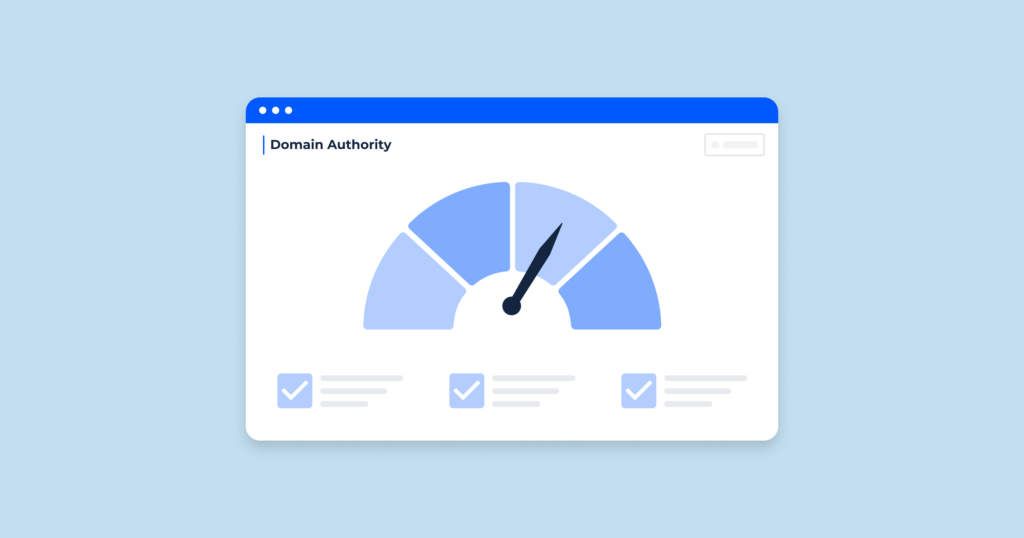
In today’s competitive digital landscape, Domain Authority (DA) has become a crucial metric for businesses looking to enhance their online presence. This article will explain what Domain Authority is, how you can check it, and provide actionable tips to improve your DA score. Whether you’re a small business owner or a digital marketing expert, understanding and optimizing your Domain Authority can significantly impact your search engine rankings.
What is Domain Authority?
Domain Authority is a search engine ranking score ranging from 1 to 100, developed by Moz, that predicts how well a website is likely to rank on search engine results pages (SERPs). A higher score indicates a stronger ability to rank for relevant keywords, giving your site a better chance of appearing in search results.
Factors Influencing Domain Authority
Moz calculates Domain Authority using various factors, including:
- Linking Root Domains: The number of unique domains linking to your website.
- Total Number of Links: The overall quantity of links pointing to your website.
- Other Factors: Moz employs over 40 different metrics to determine your Domain Authority.
These factors combine to produce a single DA score that reflects your website’s SEO strength and its potential to rank well in search results.
Is Domain Authority an Official Ranking Factor?
It’s important to note that Domain Authority is not a metric used directly by Google to determine search rankings. However, it is a valuable comparative tool that can help predict how your website might perform relative to your competitors.
How to Check Your Domain Authority
Once you understand the importance of Domain Authority, you’ll likely want to check your own score. Here are three popular tools you can use to evaluate your DA:
1. MozBar
Price: Free for basic use, with premium features starting at $99/month.
MozBar is a browser extension from Moz that allows you to view Domain Authority and Page Authority (PA) scores directly on your browser. It provides instant insights into how well your pages and overall domain are performing, making it easier to compare your site with competitors.
2. Ahrefs
Price: Starts with a 7-day trial for $7, with monthly packages ranging from $99 to $999.
Ahrefs offers a comprehensive analysis of your website’s domain, although it uses different terminology such as “Domain Rating” and “URL Rating.” These metrics are similar to Domain Authority and Page Authority, providing insights into your backlink profile and overall domain strength.
3. Majestic
Price: Ranges from $49 to $399 per month.
Majestic is another powerful tool for checking Domain Authority, offering both “Fresh” and “Historic” indexes. The Fresh index provides up-to-date data on backlinks, while the Historic index allows you to analyze backlink trends over time. Majestic focuses on both the quality and quantity of your inbound links, helping you identify areas for improvement.
What Constitutes a Good Domain Authority Score?
A “good” Domain Authority score is relative and depends on your industry and competition. Typically, you want your DA to be higher than that of your direct competitors. For example, if your competitors have scores ranging from 45 to 52, aiming for a DA of 55 would put you in a strong position.
How is Domain Authority Calculated?
Domain Authority is calculated based on over 40 factors, including:
- Linking Root Domains
- Total Number of Links
- MozTrust (a Moz-specific metric)
Improving your Domain Authority is generally easier when you’re starting with a lower score. Moving from a DA of 30 to 40 is more achievable than moving from 80 to 90.
Why Does Domain Authority Matter?
Domain Authority plays a vital role in your SEO strategy. Although it is not a direct ranking factor, a higher DA often correlates with better search engine performance. By improving your DA, you increase the likelihood of ranking higher in search results, which can lead to more traffic, leads, and sales.
4 Tips for Improving Your Domain Authority
If your Domain Authority score is lower than you’d like, here are four actionable tips to help you improve it:
1. Audit Your Profile
Start by conducting an audit of your website’s backlink profile. Identify any low-quality or broken links that could be harming your Domain Authority. Removing these bad links can help improve your score.
2. Identify Your Close Competition
Focus on competing with businesses that are similar to yours. Comparing yourself to large corporations like Amazon or Walmart can be discouraging and unproductive. Instead, identify and analyze your direct competitors to see how their Domain Authority compares to yours.
3. Create Great Content
High-quality content is essential for earning backlinks, which are crucial for improving your Domain Authority. Whether it’s blog posts, videos, or infographics, make sure your content is valuable, engaging, and shareable.
4. Promote Your Pages
Promoting your content is key to earning backlinks. Share your content on social media, reach out to industry experts, and email it to your subscribers to increase its visibility and linkability.
Conclusion
Improving your Domain Authority is an ongoing process that requires careful strategy and consistent effort. By auditing your profile, focusing on relevant competition, creating high-quality content, and promoting it effectively, you can boost your Domain Authority and enhance your website’s performance in search engine rankings.
For professional assistance in improving your Domain Authority, consider partnering with a team of experts. Contact us online to speak with a strategist and start improving your Domain Authority today.